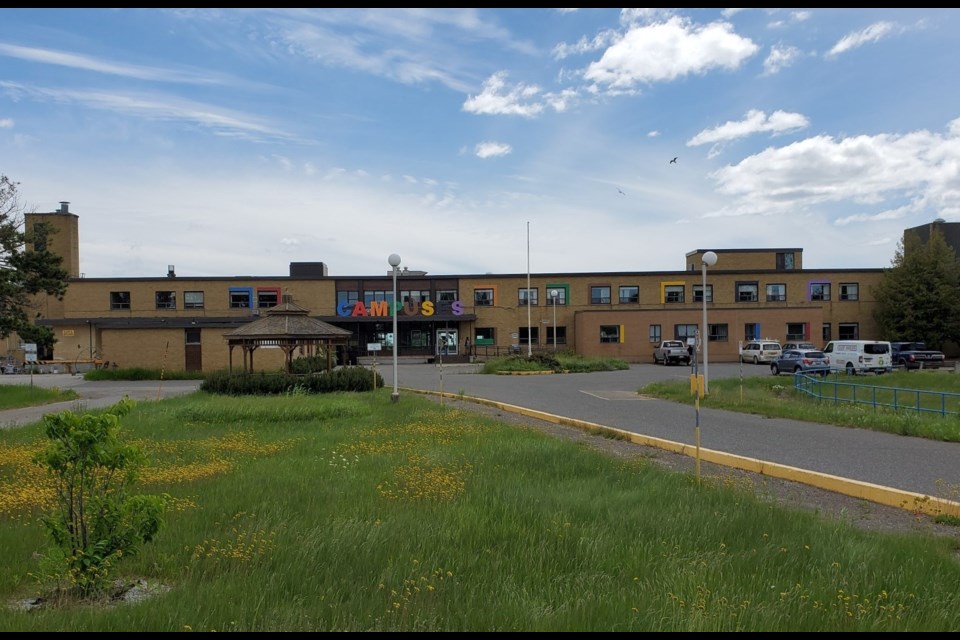THUNDER BAY — Thunder Bay’s city council has approved half a million dollars’ worth of grants intended to give a crucial boost to supportive and affordable housing projects.
Council signed off Monday on staff recommendations to award three grants through the community partnership fund, while rejecting a fourth application.
The fund was bumped up significantly to $1 million and refocused on projects that address homelessness, poverty, and addictions issues in a council vote last year. It covers up to 25 per cent of eligible costs for capital projects deemed to provide a public benefit, with a cap of $500,000.
Leaders have hailed the fund as a key way to expand the city’s role in tackling those challenges, though total homelessness spending will increase only slightly after being pulled back in other areas.
The funding awarded Monday includes $225,000 to support retrofitting and renovations at Matawa’s Education & Care Centre, and another $100,000 to support a cultural room and other renovations at its Training & Wellness Centre.
The education centre serves approximately 200 youth from Matawa First Nations who relocate to Thunder Bay for high school.
Its “circular model of care” offers housing, mental health services, recreation and trades programming, and cultural and land-based programming, as well as schooling.
City funds will support exterior renovation at the centre, including to its safe sobering site, and HVAC work that will enable welding classes.
The project’s total cost is around $4.2 million, and Matawa has also secured funding from Indigenous Services Canada, the District of Thunder Bay Social Services Administration Board, the Investing in Canada Infrastructure Program, and the Canadian Welding Bureau Foundation.
The Training & Wellness Centre, located at the former Dawson Court nursing home, includes 21 supportive housing units, a health clinic, employment and life skills programming, and a childcare centre.
The city’s $100,000 grant will support the construction of a 3,100 square foot cultural room that will support events and programming.
The cost of renovations at the facility was originally pegged at $1.5 million, but city staff reported that “external pressures will result in increasing costs.”
Matawa also received funding through the DSSAB and provincial and federal governments for the project.
Council also signed off Monday on a grant of $175,000 for seniors’ independent living facility Suomi Koti, supporting an estimated $1.4 million in design work on a planned 60-unit expansion.
The funding is contingent on Suomi Koti securing an estimated $19 million in funding from other sources for construction. It has so far received seed funding from the CMHC.
The new build will reserve 20 one-bedroom units for seniors on the waitlist for rent-geared-to-income housing.
That project meets a clear need, said city policy and research analyst Melanie Davis, noting DSSAB waitlist statistics indicate over a quarter of applicants for subsidized and supportive housing are over the age of 50.
“What we see as an opportunity here is the units that are reserved for rent-geared-to-income [could reduce] that demand on the waitlist at the DSSAB, so it may free up more space for younger single adults looking for supportive housing, as well as alleviating the pressure for older adults.”
A grant review team made up of city staff recommended rejecting a fourth application from the Thunder Bay Community Tennis Centre for its planned tennis bubble at Chapples Park.
The $3.7 million project is receiving support from FedNor and NOHFC. The review team noted the municipality has also already committed $1.5 million.
City treasurer Linda Evans told council the tennis centre was “quite comfortable with the outcome.”
Three of the four applications sought the maximum of $500,000 in funding, but staff did not specify which had not.
Coun. Mark Bentz, who launched the push to expand the fund, called that one example of a concerning shortage of information in the staff report presented Monday, which he said left him less than confident the city was maximizing the impact of its investments.
He noted it was not clear whether the projects were already fully funded, and questioned why securing other funding hadn’t been a requirement for the Matawa grants, as it is for Suomi Koti
“I think for due diligence purposes we need more substantial information,” he said. “It doesn’t appear we have a good idea what funding is in place and what funding we’re leveraging with our monies. That’s really what I’m interested in, is partnerships where we can see the return on our investment.”
The community partnership fund stands at $768,200 after the grants approved by council on Monday. City staff will recommend it be topped up again to around $1 million in the 2024 budget.
